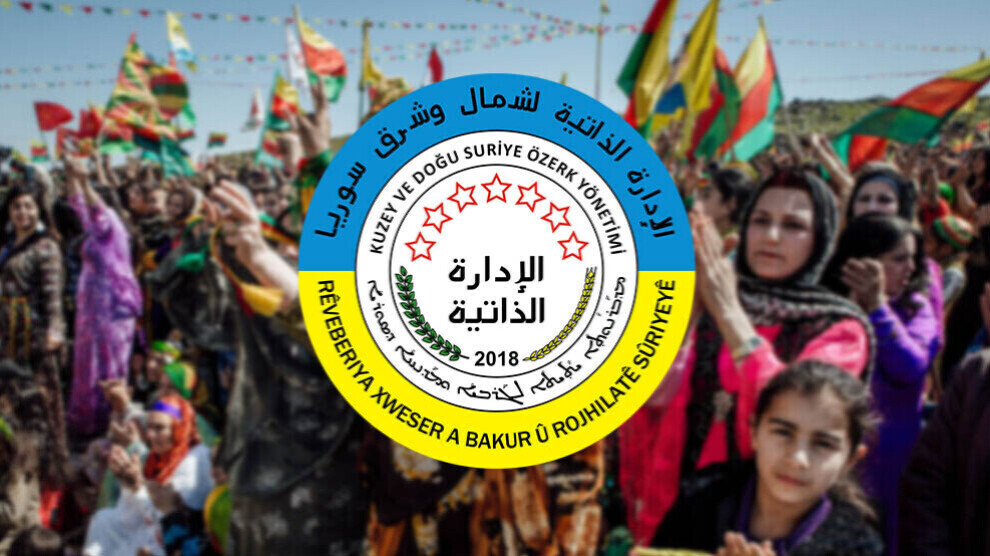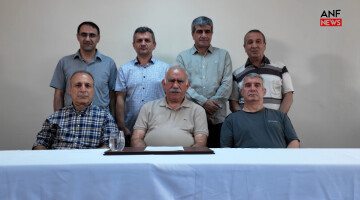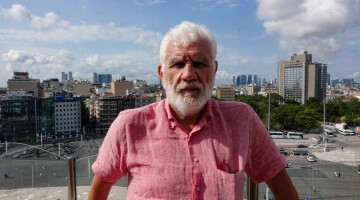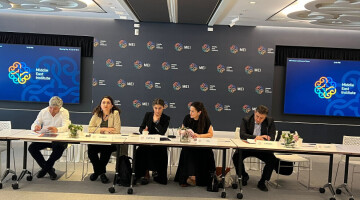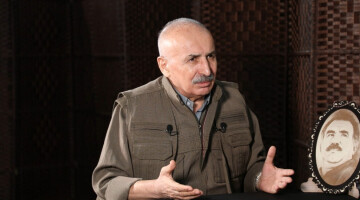The Kurds and other peoples in Rojava introduced the Democratic Nation project after the Rojava Revolution on July 19, 2012. This organization started as the North Syrian Federation and has grown stronger as it gained experience. Autonomous administrations in the form of cantons were declared in the Cizîrê Region on January 20, 2014, in Kobanê on January 27, and in Afrin on January 29. Following the liberation of the ISIS-occupied areas and the territorial expansion, the Autonomous Administration of North-East Syria, which included the local governments of Raqqa, Tabqa, Manbij and Deir ez-Zor, as well as the Cizîrê, Fırat and Afrin administrations, was declared on September 6, 2018.
A NEW GOVERNMENTAL MODEL
The Autonomous Administration, which is the current governmental model in North-East Syria, is a democratic system which relies on a Social Contract that defends the rights of people living in the region. The architect of this project, which offers a new governmental model for the Middle East and the world, is Kurdish leader Abdullah Öcalan. Öcalan, whose ideas on democratic autonomy date back to 1994, came up with this model for resolving problems in the early 2000s. Öcalan defined this governmental model that would pave the way for democratic, political, economic and cultural developments as follows: “If a democratic nation is a soul, democratic autonomy is its body. Democratic autonomy is the embodiment of Democratic Nation building.”
NO DISCRIMINATION
This administration is decentralized and run by Kurdish, Arab, Syriac, Armenian, Circassian and Turkmen representatives. In the region, women were not represented in any way during the previous regime. However, they now take their place in the administration under the co-presidency system.
MINISTERIAL COMMITTEES
The administration has several committees: Economy and Agriculture Committee, Education Committee, Internal Affairs Committee, Social Affairs Committee, Local Administrations Committee, Finance Committee, Culture and Arts Committee, Health Committee, Women’s Committee and Diplomacy Committee. The Democratic Nation and Co-Presidency project take effect also in these committees.
OFFICES IN MANY COUNTRIES
The Autonomous Administration has remained promising for the future of Syria, as it has become an important example for the Middle East and the whole world. Revolutionary organizations and movements from different parts of the world keep visiting the region to examine this model. The Autonomous Administration has official representations in Switzerland, Belgium, Germany, France and South Kurdistan. It also has offices in multiple countries. Moreover, regional organizations such as the Syrian Democratic Council (MSD), the Democratic Union Party (PYD) and Kongra Star continue their activities in many countries for the recognition of the Autonomous Administration.
DE FACTO RECOGNITION IS NOT ENOUGH
The South Kurdistan Parliament recognized the Autonomous Administration of North-East Syria in 2014 and Catalonia in 2021. This administration, which has made significant contributions to the elimination of ISIS and stands up to Turkish aggression, is not officially recognized by the world’s states. In fact, many states recognize it de facto, yet the lack of official recognition encourages the Turkish state to mount attacks on the region.
'BORDER SECURITY'
The Rojava Revolution area and the Autonomous Administration of North-East Syria are subjected to constant Turkish invasion attacks and remain as a matter of negotiation among international powers. Hegemonic powers disapprove of it since it is a pro-freedom democratic model. Since the Turkish state is also aware of it, its officials can easily make threats even in international meetings and negotiations. The Turkish government always cites "border security" to justify its attacks and threats against the region. In fact, as part of the "border security agreement" signed between the US, the SDF and Turkey on August 7, 2019, YPG-YPJ forces practically withdrew from the border line as of August 24 and handed over their points to the military councils. However, the Turkish state insisted on the invasion and launched an invasion attack dubbed 'Peace Spring' on October 9, 2019 which targeted Serêkaniyê and Girê Spi. Furthermore, on 19-20 November 2022, Turkey launched 'Operation Claw-Sword' against the region and targeted the Mekmen region of Deir ez-Zor at a depth of 70 km and the Hol Camp at a depth of 80 km. All these operations have demonstrated that the real issue is not "border security".

